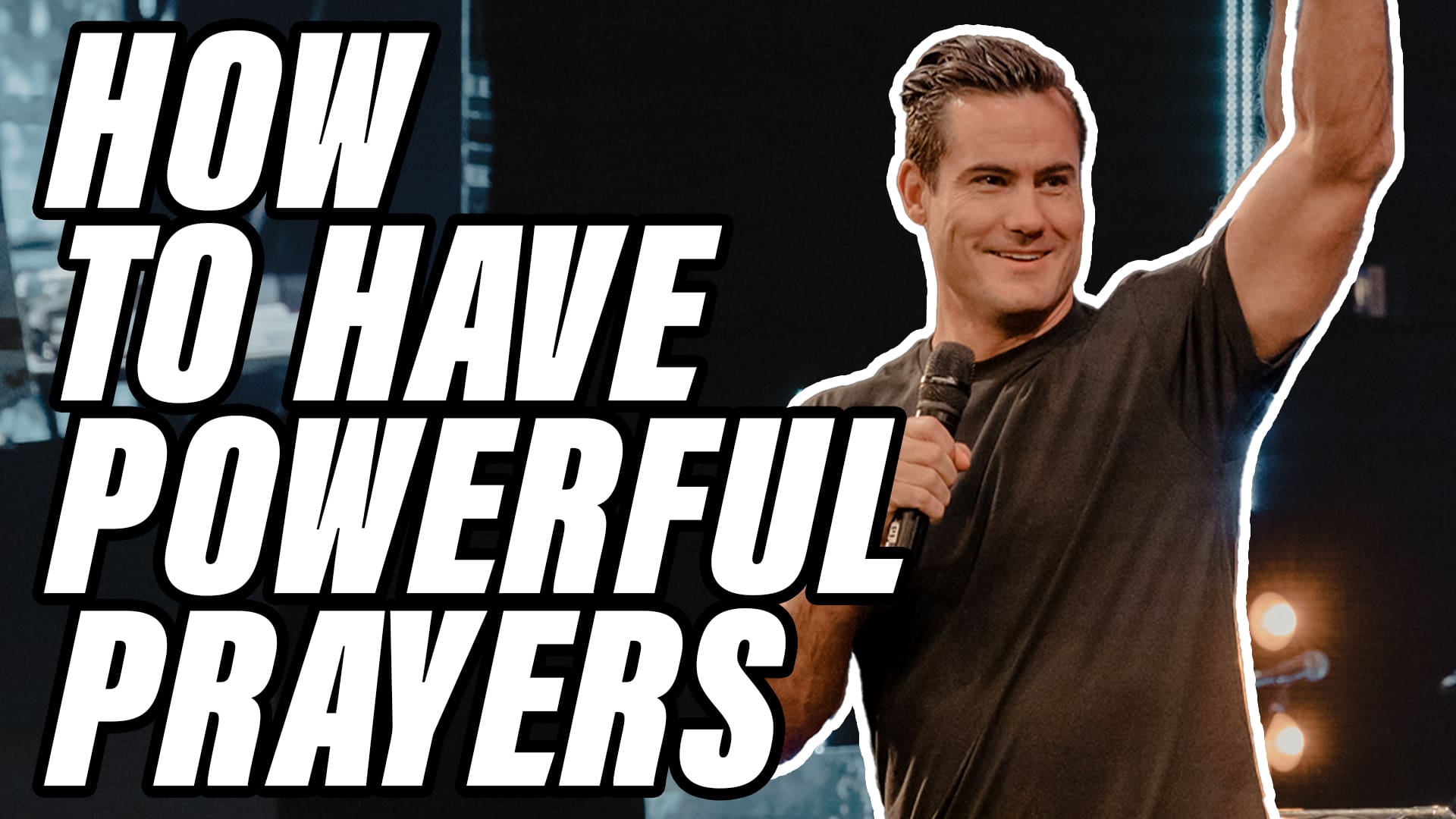HOW TO HAVE POWERFUL PRAYERS Did you know that there was a disciple named…
Is My Religion Pure?
As we study the book of James, you should know a few things:
- James is the little brother of Jesus.
- He did not believe that Jesus was the Messiah until after Jesus rose from the dead.
- After Jesus’ resurrection, James got on board and began to lead the early church with the other disciples, now known as apostles.
James had spent his whole life with Jesus and probably knew him better than anybody. So in moments of great conflict, the apostles would go to James and they would ask him what he thought. They knew that Jesus was an expert on how the church should operate, live and act. So when issues would arise, they’d ask James.
I kind of have a love-hate relationship with the word religion. Because religion is so much about the things that we do, the steps that we take, the practices, the protocols, the systems, and the things that we do that get us to God. But the gospel is not that we can do enough things to get to God but that God has done everything to get to us.
Let’s break down the difference between faith and religion. Faith is personal. It’s our willingness to put trust in God. Have you ever wondered what people mean when they say they are spiritual but not religious? They are saying that they have a one-on-one relationship with Jesus. It’s their personal faith, but they don’t necessarily subscribe to how organized religion operates. That’s where our society is in many ways: We look at churches and see how they spend money. We look at how they treat people. We see the hypocrisy, and we begin to lump all of that into one category and go, you know, it’s safer for me to have faith by myself. If faith is a one-on-one thing, religion is a corporate thing. Religion is how we practice our faith as a community of faith.
James tells us what religion is supposed to look like, not to be confused with personal faith. Faith is supposed to look like the way you love God back.
James 1:27 (NLT)
Pure and genuine religion in the sight of God the Father means caring for orphans and widows in their distress and refusing to let the world corrupt you.
James wrote what pure and genuine religion is supposed to look like. He has experience because he knew Jesus’ heart and lived it as he led the early church. In Acts 6, we get a glimpse of the early church and its issues. We also get to see how they handled situations purely and genuinely.
Acts 6:1-7 (NLT)
But as the believers rapidly multiplied, there were rumblings of discontent. The Greek-speaking believers complained about the Hebrew-speaking believers, saying that their widows were being discriminated against in the daily distribution of food.
So the Twelve called a meeting of all the believers. They said, “We apostles should spend our time teaching the word of God, not running a food program.
And so, brothers, select seven men who are well respected and are full of the Spirit and wisdom. We will give them this responsibility. Then we apostles can spend our time in prayer and teaching the word.”
Everyone liked this idea, and they chose the following: Stephen (a man full of faith and the Holy Spirit), Philip, Procorus, Nicanor, Timon, Parmenas, and Nicolas of Antioch (an earlier convert to the Jewish faith). These seven were presented to the apostles, who prayed for them as they laid their hands on them.
So God’s message continued to spread. The number of believers greatly increased in Jerusalem, and many of the Jewish priests were converted, too.
A widow is someone who had a spouse die and is now alone. During that time, women married younger, and the husband’s life span might have been around 35-40 years. When the husband died, the woman was not allowed to work and struggled to provide for herself. They had to depend on charity and the care of other people. It was most likely that she would have to marry somebody else or become an indentured servant somehow. Jerusalem had a higher concentration of widows than anywhere else because it was considered super religious to die in Jerusalem. They believed that if you died closer to the temple, you’d be first in line for the resurrection with Christ. So older or sick men would bring their younger wives to Jerusalem so they could die there. The problem was now their widow was left to fend for herself. But the church stepped up to meet the city’s needs, which included these widows. The church was filled with people that loved people that couldn’t care for or stand up for themselves. That kind of love in society demands an explanation for their faith. Their religion revolves around showing people how much they love God by loving other people, and the most significant opportunity was with the widows.
So in Acts chapter six, we see the apostles saying, “Hey, we’ve got all sorts of widows over here that are Greek-speaking and Hebrew-speaking. We can’t stop teaching the Word of God and go full-blown on this program. But at the same time, we can’t neglect taking care of them.” They understood that the most impactful thing they could do was help people and show the love of God to their neighbors. The apostles planned to pick seven people to put in charge of the program. Here are the qualifications: Number one, we need the most well-respected people with the best reputations. We need people who are going to represent our faith well. Number two, we need them to be filled with the Holy Spirit. They need to be remarkably notably filled with the Holy Spirit. And number three, we need them to be wise. These were the qualifications to run the food program for the early church. We call James Jesus’s savage little brother because he says it like it is.
James 1:27 (NLT)
Pure and genuine religion in the sight of God the Father means caring for orphans and widows in their distress and refusing to let the world corrupt you.
Religion is how you put your faith in action with a group of people. Pure religion, when you’re getting it right, is when you’re taking care of widows and orphans. It’s when you’re rallying around people that can’t help themselves. So the church, the embodiment of Christ, comes in to help and serve. That is what a church is supposed to look like.
While pastoring Freedom Church for the past 11 years, I have come to understand a couple of things. First, you are the most generous church. I study giving trends since we are a nonprofit, and what I know is that with a church like ours, the number of people that donate compared to our attendance is incredibly generous. When I look at how generous Freedom Church is and where we’re going, I see an extraordinary story that God has been writing.
Freedom Church started in my apartment with seven friends. Our friends went to a laundry mat and paid for people’s laundry without strings attached. That laundry mat grew, and we started going to a second and then a third laundry mat before we had our first service. Then we started having church services with all the laundry patrons. When I think about that first service, we had lawn chairs set up inside a karate dojo and baptized people in apartment pools. Then rented out an Irish pub, which seemed perfect because it was so cheap. But after cleaning throw up the day after St. Patty’s, our idea didn’t sound so great. Eventually, we rented out a school, which was a massive step of faith. But then we continued to grow, and currently, we are renting out our building, but instead of calling it Freedom Church, we named it the Freedom Center because the church is not the building; it’s the people.
If we continue on this path, it will continue to grow. Our church can be summed up in these three areas:
- Love Jesus
- Serve People
- Adopt the City
The first two areas are going great! We have people who decide to give their lives to Jesus every week. We have teams and life groups that serve people and show people God’s love. The third area is one that we are trying to strengthen. We still provide free laundry for people in need every month, we have given away 91,000 bags of groceries to our neighbors, and we provide hot showers and meals to our friends experiencing homelessness.
Over the next year, we will focus our efforts on continuing to adopt our city. We want to leave a LEGACY that demands an explanation. There are opportunities for everyone to get involved. We can’t wait to partner more with you.
For more information about how to Adopt our city, visit freedom.church/legacy
Pastor Justice Coleman
Instagram
TikTok
Freedom Church



